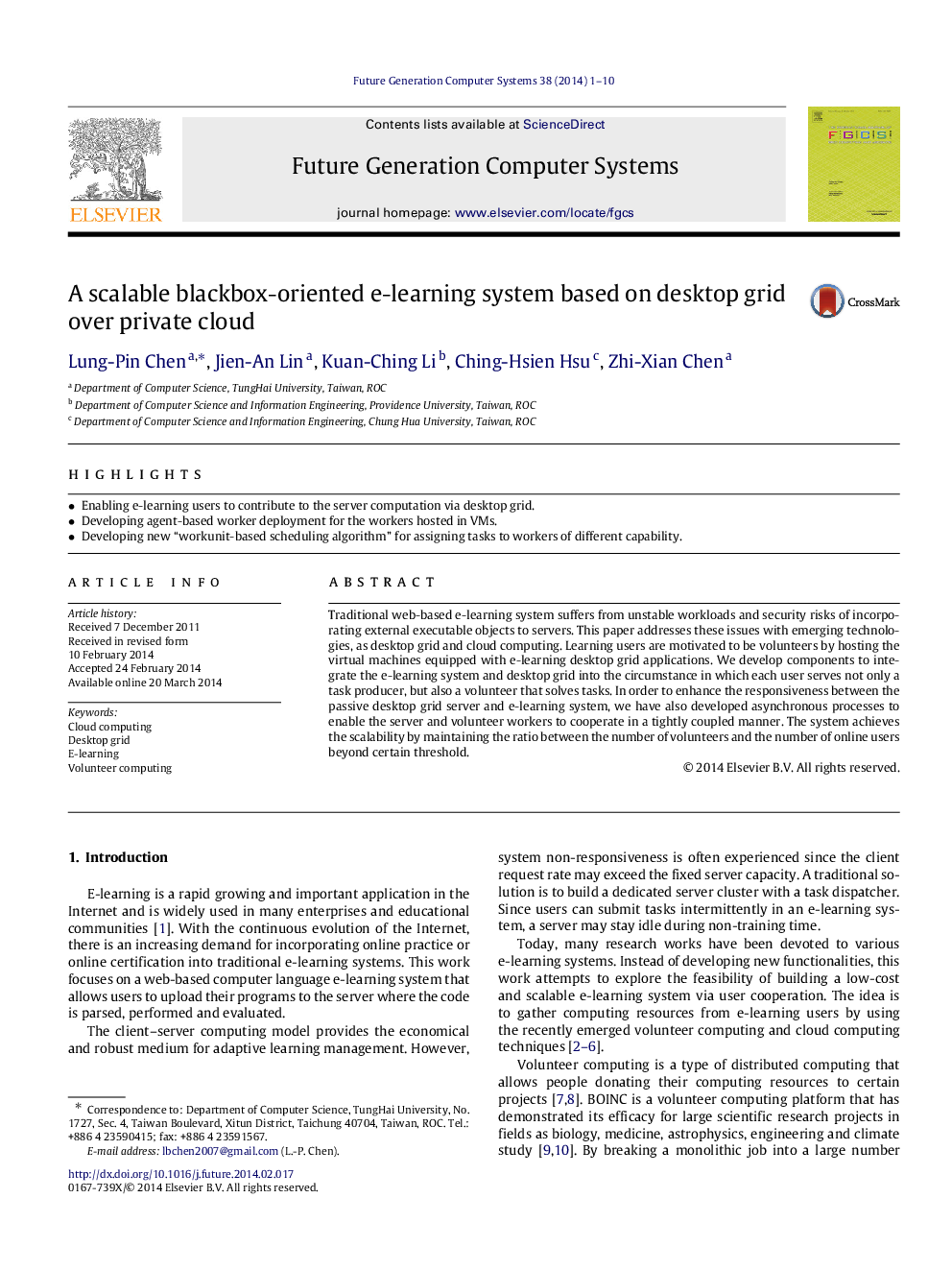| Article ID | Journal | Published Year | Pages | File Type |
|---|---|---|---|---|
| 424980 | Future Generation Computer Systems | 2014 | 10 Pages |
•Enabling e-learning users to contribute to the server computation via desktop grid.•Developing agent-based worker deployment for the workers hosted in VMs.•Developing new “workunit-based scheduling algorithm” for assigning tasks to workers of different capability.
Traditional web-based e-learning system suffers from unstable workloads and security risks of incorporating external executable objects to servers. This paper addresses these issues with emerging technologies, as desktop grid and cloud computing. Learning users are motivated to be volunteers by hosting the virtual machines equipped with e-learning desktop grid applications. We develop components to integrate the e-learning system and desktop grid into the circumstance in which each user serves not only a task producer, but also a volunteer that solves tasks. In order to enhance the responsiveness between the passive desktop grid server and e-learning system, we have also developed asynchronous processes to enable the server and volunteer workers to cooperate in a tightly coupled manner. The system achieves the scalability by maintaining the ratio between the number of volunteers and the number of online users beyond certain threshold.
